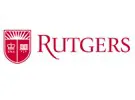New Jersey Department of Agriculture has issued a notice concerning open burning due to colder overnight temperatures presently forecasted for areas of New Jersey from October 18 through October 24, 2022, which could adversely affect wine grape (grapevine), fruit, vegetable, and floriculture crops.
Note: The NJDEP and New Jersey Forest Fire Service caution all farmers and agriculture businesses with respect to the use of open burning in high wind velocity conditions. Please take note that farmers are encouraged to utilize smudge pots is warming as necessary during higher wind conditions. Use of open burning when wind velocity is greater than five mph is strictly prohibited, may contribute to wildfire risk, and can carry significant penalties.
For the Burn Permit Application form, please see: https://www.state.nj.us/dep/parksandforests/fire/docs/ag-permit.pdf.
The DEP intends to exercise its authority and discretion under the Air Pollution Control Code, N.J.A.C. 7:27, et seq., and other applicable authorities to permit the following procedure for open burning or the use of smudge pots to assist farmers in protecting their crops in low temperatures. Procedures for Open Burning and the Use of Smudge Pots Pertaining to New Jersey Fruit, Vegetables, and Floriculture
- Facilities that believe they will conduct open burning or use smudge pots must provide notice to the DEP 24-hour Communications Center at 1-877- WARN DEP (1-877-927-6337) prior to the use of either technique.
- Facilities should notify DEP if they believe they may need to use either technique.
- Where DEP cannot be notified in advance, a facility must notify DEP the following morning no later than 9:00 a.m.
- The following information must be provided to DEP upon each notification:
- Name of the individual deciding to conduct the open burning or use of smudge pots.
- Name of the farm or facility.
- Actual street address of the facility on which either technique will be used.
- Contact person and telephone number at the facility.
- Predicted temperature (in F) at the facility anticipated when the technique will be used.
- Predicted wind speed at the facility anticipated when the technique will be used.
- Predicted hours of open burning or use of smudge pots.
- Predicted material to be used for open burning or use of smudge pots.
- Upon completion of the open burning or the use of smudge pots, the facility must provide the following information within two business days to the DEP 24-hour Communication Center at 1877-WARN DEP (1-877-927-6337):
- The DEP Communications Center incident number.
- Ambient orchard(s) temperature (in F) at the time the technique was used.
- Actual wind speed at the orchard(s) location at the time the technique was used.
- A statement that all restrictions in the open burning or use of smudge pots were followed. The restrictions are noted below.
-
RESTRICTIONS
- NO OPEN BURNING WILL BE PERMITTED UNLESS: 1. The temperature within the orchard area is at or below the critical temperature for the bud stage. The attached report lists the critical temperatures for New Jersey crops. -AND2. The wind velocity is less than 5 miles per hour. • Authorized open burning material may consist only of either the following materials: clean scrap lumber (untreated), felled trees, prunings, hedgerows or firewood. • ABSOLUTELY NO refuse, trade waste, tires, garbage, or other solid waste may be added to the authorized open burning material. Introduction of any unauthorized material into an authorized open burn is a violation of environmental laws and may carry significant penalties. • Smudge pots are only permitted when the temperature within the orchard area is at or below the critical temperature for the bud stage (wind velocity restriction does not apply). • Smudge pots must be fueled only with either kerosene or No. 2 fuel oil. • Failure to abide by these provisions and restrictions may result in enforcement action.
For more information: 
Rutgers University
State University of New Jersey
www.rutgers.edu
